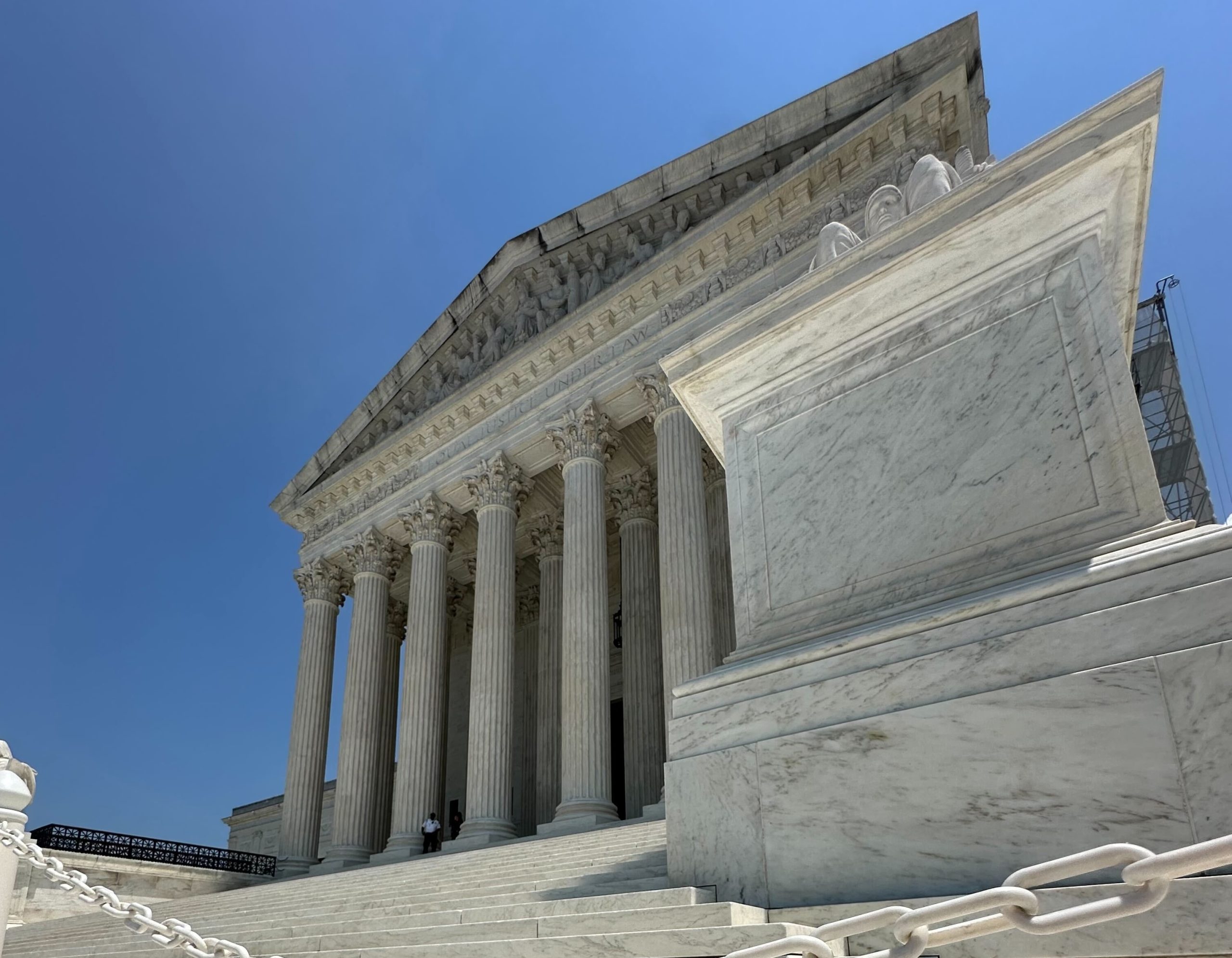OPINION ANALYSIS
Supreme Court allows ex-council member’s retaliatory arrest lawsuit to move forward

on Jun 20, 2024 at 4:38 pm

The court handed a win to a former-city council member in Texas on Thursday, clearing the way for her federal civil rights claim to move forward. Sylvia Gonzalez contends that her 2019 arrest on charges that she had tampered with government records came in retaliation for her criticism of the city manager in Castle Hills, Tex. In a brief unsigned opinion, the justices reinstated Gonzalez’s claim after a federal appeals court had thrown it out, holding that the lower court had applied an “overly cramped” reading of its caselaw.
Gonzalez, who is 76 years old and the first Hispanic woman elected to the city council in Castle Hills, was charged in 2019 with violating a state law that makes it a crime to intentionally tamper with government records after she placed a petition that she had initiated, criticizing the city manager, in her binder. Gonzalez says that she accidentally picked up the petition after a long meeting. She spent the day in jail and eventually left the council.
The district attorney did not pursue the charges against Gonzalez. But Gonzalez went to federal court in 2020, where she argued that the charges stemmed from the desire of three city officials – the city’s mayor, its police chief, and a detective – to retaliate against her because she had criticized the city’s manager.
Gonzalez’s complaint noted that she was the only person charged in the past 10 years under the state’s government records law for temporarily misplacing government documents. Almost all of the 215 felony indictments under that law, she observed, involved the use or creation of fake government IDs.
The question before the Supreme Court was whether this kind of evidence was enough to allow Gonzalez’s retaliatory arrest claim to go forward. Under the Supreme Court’s 2019 decision in Nieves v. Bartlett, a plaintiff can generally only bring a federal civil rights claim alleging that she was arrested in retaliation for exercising her First Amendment rights if she can show that police officers did not have probable cause to arrest her. At the same time, the court also carved out an exemption for plaintiffs who can show that others who were not engaged in the same kind of protected speech were not arrested.
The U.S. Court of Appeals for the 5th Circuit threw out Gonzalez’s case. It ruled that to fall within the Nieves exemption, Gonzalez would have had to offer evidence of specific people who had mishandled a government petition in the same way that she had but – unlike her – were not arrested.
On Thursday, in a five-page opinion, the Supreme Court sent Gonzalez’s case back to the court of appeals for another look, holding that the lower court had construed the Nieves exemption too narrowly. “Although the Nieves exception is slim,” the court explained, “the demand for virtually identical and identifiable comparators goes too far.” Gonzalez’s evidence was enough to allow her case to move forward, the court reasoned, “because the fact that no one has ever been arrested for engaging in a certain kind of conduct — especially when the criminal prohibition is longstanding and the conduct at issue is not novel — makes it more likely that an officer has declined to arrest someone for engaging in such conduct in the past.”
The court declined to address Gonzalez’s second argument – that Nieves applies only to claims that arise from split-second arrests, rather than to all arrests more broadly. Instead, the court sent the case back to the 5th Circuit for it to determine whether the evidence that Gonzalez had offered is enough to meet the Nieves standard.
Justice Samuel Alito wrote a concurring opinion that, he said, was intended to provide more guidance to courts dealing with such cases in the future. He rejected the defendants’ argument that, if plaintiffs are not required to provide “the kind of strict comparator evidence demanded by the Fifth Circuit,” they will be able to circumvent “the whole purpose of the whole probable-cause rule.” Alito emphasized that courts “should not conflate the question of whether certain evidence can be considered under the Nieves exception with the entirely distinct question whether the evidence suffices to satisfy this threshold inquiry.”
And in Alito’s view, the Nieves rule applies to all arrests – not just those made on a split-second basis.
Justice Brett Kavanaugh filed his own concurring opinion. He suggested that the court was looking at the wrong question, because “Gonzalez’s argument turns not on her conduct (taking government records) but rather on” whether she intended to do so. Therefore, he contended, Nieves does not apply at all. But he nonetheless agreed with the court’s opinion, he concluded, because “it does not seem to say anything that is harmful to the law.”
Justice Ketanji Brown Jackson wrote a brief concurring opinion, joined by Justice Sonia Sotomayor, in which she emphasized that the court’s recognition that Gonzalez could rely on evidence that “no one charged with the crime for which she was arrested had engaged in conduct similar to hers” was not the only kind of evidence that plaintiffs can use to make the showing required by the Nieves exemption.
Justice Clarence Thomas dissented from the court’s decision. He reiterated his belief that to bring a claim alleging an arrest in retaliation for the exercise of First Amendment rights, a plaintiff “should have to plead and prove a lack of probable cause.”
This article was originally published at Howe on the Court.


